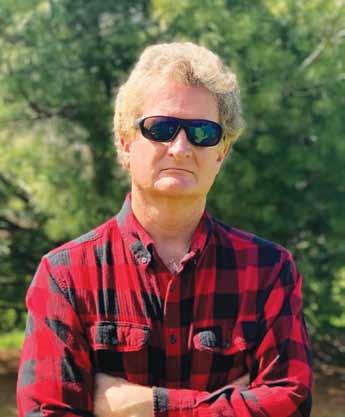
17 minute read
Al Leonard - $80 Million Man
Al Leonard is he “$80 Million Man” in ge ing gran s for Colu bus Coun y owns
STORY Allen Turner PHOTOS Submitted
Advertisement
To call Al Leonard the “$80 Million Man” might be a bit of a stretch, but it wouldn’t be that far from the truth, either.
Since 1997, Leonard, the Tabor City town manager who also consults on a part-time basis for four other municipalities in Columbus County, has been a driving force behind the infusion of $79,251,505 in grant funds here.
The biggest chunk of that funding – $37.6 million – has gone to Fair Bluff instead of Tabor City, the home of Leonard’s fulltime job, but that’s only because Fair Bluff had the misfortune to be hit so hard and suffer such damage from flooding after hurricanes in 2016 and 2018. Leonard has actively and continuously pursued funding for all the towns with which he is involved.
Things have changed a lot since Leonard, a native of Burlington, first arrived in Columbus County in 1987. He was 23 years old, single and attending school three days a week working on a master’s degree in public administration at UNC-Chapel Hill. The other four days a week he lived in a room at the Todd House and worked for the Town of Tabor City.
Fast-forward until today: The 56-year-old grandfather continues to be active in assisting five local governments but also finds time to spend every moment possible with his new grandson in the N.C. mountains and with his aging parents in Alamance County. His wife, the former Suzette Spurrier, has already mostly retired after a career with the Wright, Worley, Pope, Ekster and Moss law firm in Tabor City and has moved west to be near that new grandson, although she still returns to Tabor City to work one day a week in the law office. Will Leonard be following Suzette into retirement? Not in the near future, he says.
“I’ve made commitments to each of the towns that I work for that I will carry out some of the big projects that we’re working on right now, and I envision that to be at a minimum another two or three years,” he says. Those projects include a major overhaul of the wastewater treatment plan, the repair of the Lake Tabor dam and the development of a business incubator.
In Fair Bluff, Leonard will be busy with the development of the EDA business incubator to replace businesses destroyed by Hurricane Matthew and Hurricane Florence. Brunswick just received a planning grant to combine three small water systems in the Brunswick area into one larger system. Cerro Gordo has just received a three-year recovery and resiliency grant and in Boardman they’re looking at the possibility of a large commercial project (in addition to a new N.C. Dept. of Transportation interchange there).
Al Leonard checking sewer pump run times at a new pump station in Brunswick, which is wrapping up a $2 million CDBF infrastructure project.

“There are some huge initiatives going on in each of those communities,” he says, “and I am committed to sticking with them until they are completed.”
His knack for – and history of – grantsmanship going back to 1987 and continuing into the future are assets well-suited for and sorely needed in Columbus County.
“Even before I ever thought about moving to Columbus County, I had noticed in news clips and from talking with people that the 1970s and 1980s had been a time in Columbus County dominated by ‘power’ and ‘politics’,” Leonard says. “It seemed like everyone was preoccupied with getting one-up on some other faction in the county. There was a constant battle in local governments, but there was very little to be shown from all that battling.”
Upon moving here, Leonard soon came to feel that the focus needed to change from “power” and “politics” to “projects” and “progress.” He still feels that way.
“In the end, we have to show the citizens how we have advanced their situation,” he says. “I didn’t see a lot of that back in the 1980s, and evidently there wasn’t a lot of it in the 1970s, either. It’s always difficult to change a culture, but I sensed that the government culture in Columbus County had to really shift away from local officials garnering headlines for publicity’s sake and instead shifting toward just working hard for the sake of progress.”
Columbus was a low-wealth county when Leonard arrived in 1987, and it continues to be a low-wealth county. “There never will be enough money generated in our towns to pay for large capital projects and it’s going to always take money from Washington or Raleigh to implement the big scale projects that our citizens have said they want to see,” he says.
It is difficult, he says, to tell citizens after they have written their
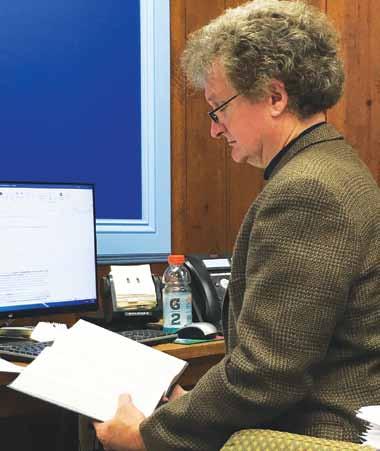
Leonard spends much of his time researching N.C. general statues and grant regulations.
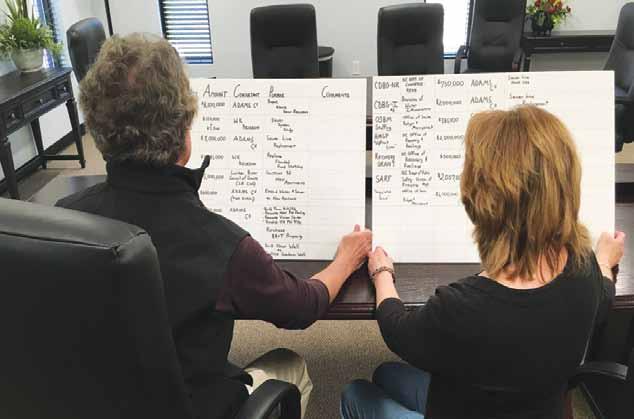
Free Prescription Delivery

NO CHARGE for Strip Packaging
Convenience at NO Additional Charge
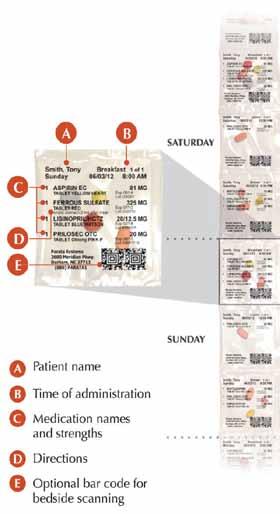

• Strip Packaging and traditional bottles available
What others say about Al Leonard -
“A long time ago, I had to go up to my business at about 3 in the morning. As I was entering the rear of my store, I noticed the lights were on up on the second story of the Town Hall. I saw Al’s car parked outside. Later I learned that he was up there pulling together all the information he needed for a grant that was being written. When you have employees that are willing to pay any price or make any sacrifice then good things happen in your organization. That’s why Tabor City has been awarded over 120 grants. That how we have been able to average winning $1 million in grant money each year for 32 years in a row. Can you imagine where Tabor City would be if we had not received this money? We’d still be on dirt streets with much of the town unserved by utilities. The grants are the key. - Tabor City Mayor Royce Harper -“I think Al Leonard is by far the smartest man I know. He is definitely my go-to guy. Al is passionate about his work and always puts 100 percent in on everything he completes. He is always willing and eager to help me when I have a question concerning my position. Al has told me several times that he is only a phone call away. He is not only a great employee but a great friend for life. Any town in Columbus County is honored to have Al Leonard working for them.” - Boardman Town Clerk Crystal Rogers


-“Al Leonard has been the heart and soul of Fair Bluff since I have known him. He is not only a hard worker, but he also has a very big heart for the many towns he serves. Al looks for the avenues that would enhance growth and prosperity for the towns and, in doing so, he has written many grants specifically for the Town of Fair Bluff to help make things happen. His grant writing efforts have been very beneficial especially in light of the hardships Fair Bluff has suffered from the flooding of two major hurricanes. Al brought attention to the Town of Fair Bluff through his due diligence, his knowledge, skills, grant writing and compassion in his efforts to help restore the Town. - Fair Bluff Town Clerk Peggy Moore -“I first got a call from Al back in the late 1980s when he was looking for a firm to assist the town with writing a grant, and I thought it would be a good possibility for a young engineer like me. However, I didn’t know this relationship would last a lifetime. We’re still assisting Al and the five towns he works with grant applications. I have tremendous respect for Al and for all the mayors, council members, other leaders and staff who seek every opportunity to improve their towns. My work with Al always has been a pleasure, and I am truly thankful for that first call.” - Floyd Adams, consulting engineer
property tax checks for hundreds or thousands of dollars that local revenues just aren’t enough to pay for local operations. “The total of every tax dollar paid in a small town is not enough to even pay for the operation of the police department in most cases. Where does the money come from to pay for all the other departments, or street paving, or to run the streetlights at night? The answer is that these funds typically come from revenue shared by the state government.”
Leonard says that when it comes to major capital projects like water or sewer lines or constructing a building, there is usually no option other than applying for a grant. “The small towns could never even set aside money every year and eventually pay cash for large projects. The bottom line is that it’s either grant dollars or no progress, and I don’t think our citizens would accept us making no progress.”
While Leonard enjoys every aspect of his jobs with the five towns “from top to bottom,” he says grantsmanship is his favorite function. “Sitting in a room with others and thinking about what you need and figuring out how to get a grant to pay for it is very rewarding. When you have nothing, and no resources, and a few years later you have built a new town hall or built a park, that is something you can be proud of,” he says.
As an example, Leonard remembers that just after he arrived here in 1987, county voters had rejected a bond referendum for a countywide water system. The late Lynwood Norris, then a county commissioner, approached Leonard and said he’d like to see a water system in his district on the southern end of the county. They set up a meeting with the late E.C. Sanders Jr. and the late Roy Lowe, who was county administrator at the time. Engineer Fred Hobbs was involved, too, and the idea came up of holding elections one district at a time to build water systems with federal grants and loans. It was decided that Lynwood’s district would be the first one to give it a shot.
“The election was held and district water passed by less than 10 votes,” Leonard says, “but it was that meager start over 30 years ago that has led to where we are today. Once Lynwood’s district started showing progress through a very large project, other parts of the county wanted their progress, too.”
As another example, Leonard remembers that after Hurricane Matthew in 2016, Fair Bluff received a grant from the Golden LEAF Foundation for a new town hall/police department and a new public works facility. “That was a major announcement in the press because it was so important for the future of Fair Bluff,” Leonard said. “A few days later after a Cerro Gordo town council meeting, several of us were standing around talking and Councilman Jeff Green asked me why Cerro Gordo couldn’t get the same type of grant Fair Bluff had. You know, Jeff was right.”
Leonard called the town’s engineers and Rep. Brenden Jones the next morning. “We started pursuing a Golden LEAF grant for Cerro Gordo and the result is what you see today. Cerro Gordo has a great town hall that should last them for the next 50 years or so,” Leonard says. “That is an example of the kind of culture I was trying to create when I moved here. Instead of one town trying to just get more power than the other
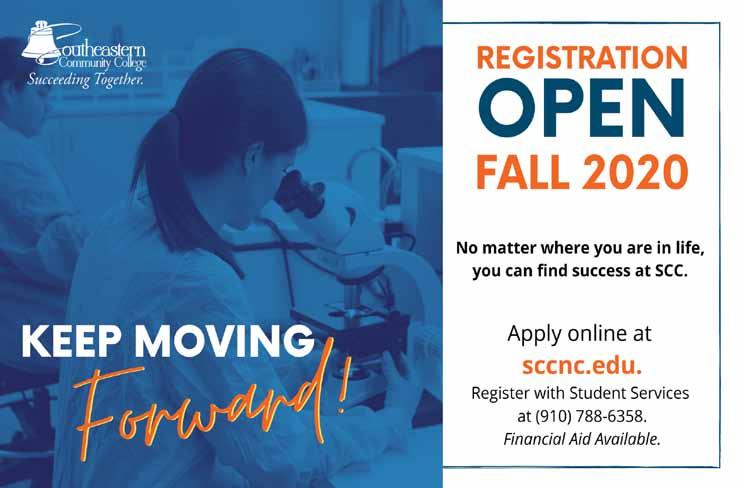

town for the sake of bragging rights, why can’t one town’s success chalapplication. Beneath the surface there are the local elected officials, lenge another town to try and be just as successful?” engineers, grant writers, consultants, accountants and municipal em
After the 2009 recession, the federal government put together a stimulus package of public works projects to help get the economy back on its feet and Leonard began scratching his head to try and figployees. Each of them has to perform their job to perfection if we’re going to compete with the 100 counties and over 550 cities in North Carolina that also are competing for the same money.” ure out how Tabor City could He adds, “I can’t say benefit from that. “Here was enough about our elected ofthe biggest public works inificials. The mayors and countiative of my career, and I cil members I work for are was struggling to see how we the best. They have no egos. could capitalize on it,” he says. They just want to try and ac
“We figured out there would be funds available for park construction projects. Our council and recreation volunteers had been dreaming of a way to expand our athletic complex for some time. It was very rewarding to see their dreams come true. Our engineers put together a very strong application for funds to build ball fields and a new concession stand. Like I said, when you start with nothing and you end up with something, it is very rewarding and you can be proud of it.”
Leonard doesn’t take credit for the $80 million in grants he’s been associated with. “I am just the tip of the iceberg that everyone sees,” he says. “There probably are half a dozen folks working on every grant complish the things that the citizens are telling them they want to see. Another key component is our legislators. I’ve been successful in working with all of them, ranging from former Sen. R.C. Soles and former Reps. Dewey Hill and David Redwine to current Sens. Danny Britt and Bill Rabon and, of course, Rep. Brenden Jones. I’ve just felt like it was my role to keep them informed on what the local towns were trying to prioritize. I think our legislators have always appreciated that. Every one of them has worked hard to get money back down here in their districts.”
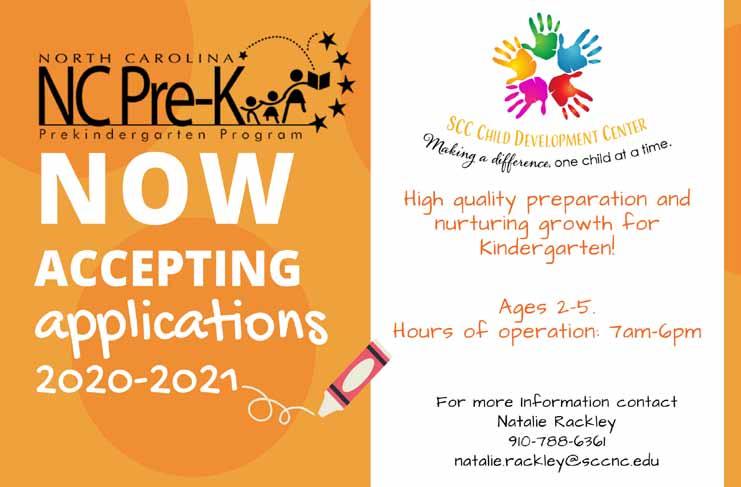
Leonard says that most of the actual grant writing work takes place in the offices of the towns’ engineers, grant writers and consultants. Leonard files in 2012 at the Board of Elections as a candidate for N.C. House of Representatives.

One of Columbus County’s BEST Pharmacies Customer Service
Jack Meares, Pharmacy Manager 620 Jefferson Street, Whiteville | 910-642-3065

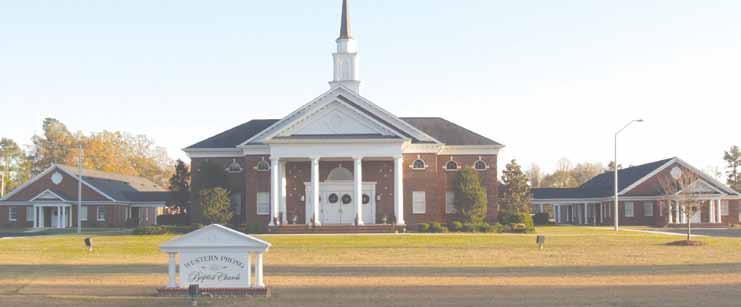
Livestream with us every Sunday at 11:00 a.m.
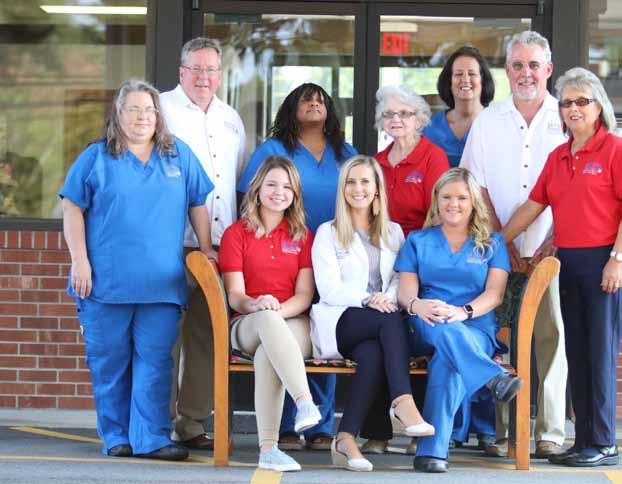
Western Prong Baptist Church
Opportunities for all ages to attend
112 Peacock Rd., Whiteville (910) 648-2744 www.westernprong.org
Sunday Worship Services 8:30 & 11am Sunday School 9:45am Sunday Night 6:30 Wednesday Night 6:30
We are inviting all Hispanics who want to hear the Word of God in Spanish to join us every Sunday at 11:00 am to our Hispanic Baptist Church, "The Way of Life" with Pastor Roberto Mancillas. For more information, call Pastor Roberto at (704) 941-9175. We await!
Invitamos a todos los hispanos que desean escuchar la Palabra de Dios en español para que nos acompañen todos los domingos a las 11:00am a nuestra iglesia Bautista, “El Camino de la Vida,” con el pastor Roberto Mancillas. Más información al teléfono 704-941-9175 con el Pastor Roberto. Les esperamos!
“I still author a few grants myself,” he says, “but the applications are becoming so elaborate that in most cases we have several professionals working on them. It’s a lot of fun. Can we beat out the very large municipalities we are competing against? I hate to lose. We always start out with the position that we are planning on winning.”
He says that over the years he has learned a few tricks of the trade on how to transform information into a successful grant application. “The bottom line is that if grants are your number one priority, you have to restructure how you do everything. The way we operate our departments, the way we get our finance reports, the way we set up our calendar for the work year, the way we prioritize our needs are all geared toward one day writing a grant. That’s the secret. We do everything in order to position ourselves for a successful grant.”
The quest to make progress in Tabor City has been contagious. “Over the years we’ve had department heads who have written their own grant applications to help their agencies make progress,” Leonard says, “so sometimes I’ve been able to switch roles with them. They’ve become the grant writers and I’ve stayed out of their way and concentrated in the day-to-day operations of the town. In the end, it has worked.”
Leonard thinks his goal of changing the culture here has been minimally successful. “I am not naïve to think there never will be power struggles and we obviously live in a super-politicized world, but in some way I think the local governments here have tried to zero in on making progress with grant funding. We all try to get together every quarter and just make sure we know who the leaders are all around the county. We try to talk about what we are working on and what our needs are. Every time a town around here gets a grant, it raises the bar for the rest of us to do the same. I do think that the bar is a heck of a lot higher than it was in 1987. Maybe I had a little to do with that.”

And the new grandson in the western part of the state and how that development might play into his personal plans? “Everyone has been asking me about when I’m going to stop,” he says. “I guess that’s because I surpassed the 30-year full retirement mark five years ago. Well, I have a broad timetable for retiring and I’ve mentioned it in general terms to the five towns I work for. Obviously, there’s more distance in the rear view mirror of my career than there is out my windshield, but it won’t be anytime soon. We’ve got huge projects in the works in each town I work for. I think it will take two or three years to get them fully implemented. Who knows how many more grant applications we can write in that time?”
Leonard says that for the past 30 years his “hobbies” have been going to meetings every night or locking himself in a room to read and take notes on 200-page reports. “I just hope it’s not too late in life to maybe have a hobby someday. I hope in a few years to find a pastime that will be as rewarding and enjoyable as finding grant money has been.”
He tries to keep everything in perspective. “The five towns I work for were in existence a long, long time before I got here and they will be here a long, long time after I am gone. In context, it’s really just been a brief period of time these towns have asked me to come on board and try to help them make progress. That is humbling when a friend holds out their hand and asks if you will help them out. I’ve tried my best, and for about 80 million times, we’ve been able to get some things done.”
Our goal is to help students find CONNECTION, COMPASSION & CHARACTER.
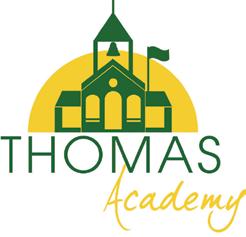
A FREE NORTH CAROLINA PUBLIC
CHARTER SCHOOL • LocatedatLakeWaccamaw • Opentoallstudentsin grades6through12
• Small class sizes • Afterschool activities with transportation provided • Career-technical courses • Parternship with Southeastern Community College









